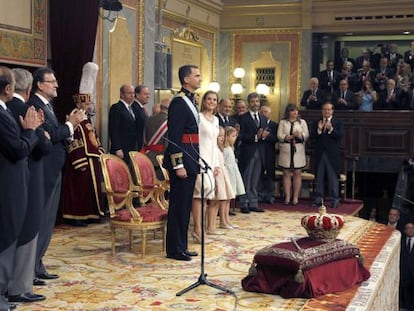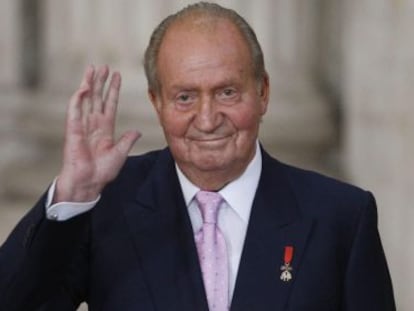The legacy of SpainˇŻs Juan Carlos I
As he turns 80, Felipe VIˇŻs father can look back on memories of a reign that ushered in a period of democracy and economic prosperity
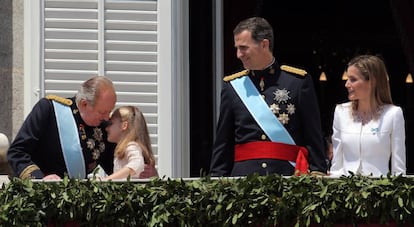
Juan Carlos I, father to SpainˇŻs reigning Felipe VI, is turning 80 this Friday. ItˇŻs been nearly four years since he passed on the throne to his son at an agonizing time filled with physical setbacks and a scandal ¨C the N¨®os case ¨C that entangled his daughter Cristina.
But his 38-year reign encompasses much more than this final picture that undermined the monarchy and has since been used by radical sectors to disparage what they term the ˇ°1978 regimeˇ± which Juan Carlos unquestionably helped set up.
His time on the throne coincides with a period when Spain enjoyed its greatest prosperity, and the basis for it was the kind of political consensus that is hard to come by these days, a fact that has lately led the country into several political impasses.
La Zarzuela felt the need to ensure that Juan Carlos I would be remembered much more for his achievements than for his mistakes
Juan CarlosˇŻ actions as head of state played a determining role in ushering in this period when the Spanish democracy and economy were able to flourish. He brought democracy to Spain even though he could have caved in to pressure by the military to keep things as they were under Franco, who had chosen him as his successor. He defended democracy against the attempted coup of February 23, 1981 and he helped place the country on the map through his tireless travel.
More than a few experts feel that the two most relevant facts in the evolution of the Spanish economy over the last 40 years ¨C stability and opening up to the outside world ¨C are intimately linked to Juan Carlos I and the Spanish Crown.
And many scholars are also calling for a reassessment of his public figure, to compensate for the fact that many of his historically relevant actions have been eclipsed over the years by anecdotal events.
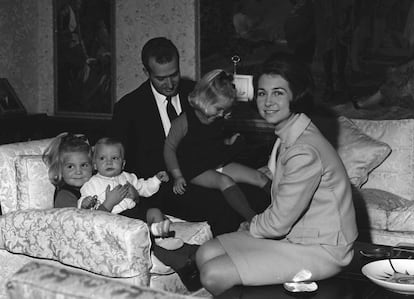
Juan Carlos I is turning 80 at a time which may not be the best period in his own life, but which could give way to a second life. Unlike other royal households at similar moments, La Zarzuela, the seat of the royal household, has not programmed any special event to observe the anniversary. This is partly due to the austerity policies introduced by Felipe VI after his accession to the throne in 2014, and partly because of the complex political situation, with SpainˇŻs territorial integrity at risk from the Catalan secession bid.
But Juan Carlos IˇŻs public appearances will increase in 2018 ˇ°in a series of initiatives and public activitiesˇ± sponsored by La Zarzuela. These have already begun: for the first time since his abdication, Juan Carlos I will join his son on Saturday for a military ceremony that takes place every January 6. The Pascua Militar is also attended by the Spanish prime minister, cabinet members and high-ranking officials from the armed forces and the Civil Guard.
This will go some way towards compensating Juan Carlos for the fact that he did not receive an invitation to attend Congress on the occasion of the 40th anniversary of the first democratic elections in Spain ¨C which he had personally helped make a reality by embracing democracy instead of preserving the authoritarian state model. This omission angered Juan Carlos, and he gave vent to this feeling when he answered affirmatively after a friend asked whether ˇ°the driver of the Transition truck has been excludedˇ± from the celebrations.
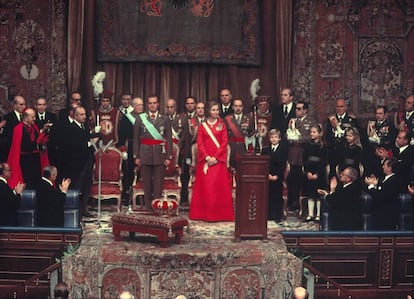
La Zarzuela was keeping the former ruler out of the spotlight because of his ˇ°toxicity.ˇ± His once-soaring approval ratings had plummeted in the latter years of his reign following media coverage of hunting expeditions, sentimental relationships and the N¨®os case, putting the very survival of the Spanish monarchy in doubt.
On February 28, 2014 he informed Prime Minister Mariano Rajoy of his decision to abdicate, three months before the news became official. The move helped significantly reduce the pressure on the institution at a time when Spain was still struggling with a prolonged economic crisis and the threat of a EU bailout loomed on the horizon.
Under the new king, the monarchy set a new course underscoring values of morality, austerity and transparency in a bid to restore credibility to the institution. Since then, Felipe VI has crafted his own image as the Spanish head of state and stability has returned to La Zarzuela: according to the latest opinion survey by the Center for Sociology Research CIS, only 0.1% of Spaniards view the monarchy as a problem.
But the improved attitude towards the royals has been soured by the rise of antiroyal secessionists in Catalonia, and by an unprecedented presence of republicans in the Spanish Congress.
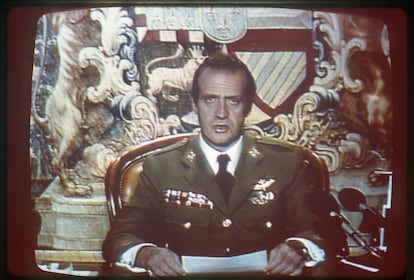
The time has now come to restore Juan Carlos IˇŻs public image. Although he has been out of the spotlight for some time, he never fully stopped carrying out official activities. Since 2014 he has participated in around 90 events, delivered 13 speeches and gone on eight official trips, most of them of a cultural nature. In more recent times, when SpainˇŻs political life was at a standstill due to national elections that yielded a hung parliament, Juan Carlos adopted a higher political profile: he attended the signing of the peace accords in Colombia, the opening of the expanded Panama Canal, the funeral of Fidel Castro, and several Latin American presidential inaugurations.
Still, La Zarzuela continued to worry about the monarchˇŻs reputation, and felt the need to ensure that Juan Carlos I would be remembered much more for his achievements than for his mistakes.
Princess CristinaˇŻs acquittal in the N¨®os case on February 17, 2017 was a turning point in this endeavor, even though the royal familyˇŻs unity was deeply eroded by that stage. For Cristina, who had refused to give up her rights to the throne despite her familyˇŻs entreaties to do so, there was no possible rehabilitation.
But for Juan Carlos I, the time had come to give him greater visibility once again. He showed up at the 25th anniversary celebration of the Seville Expo, and at the 30th anniversary of the treaty by which Spain joined the European Community.
He was also seen at events with his son, Felipe VI, sending out a message of renewed unity and also of continuity ¨C the idea that the Spanish monarchy can carry on with the kinds of achievements that it brought Spain in the 1980s.
English version by Susana Urra.

